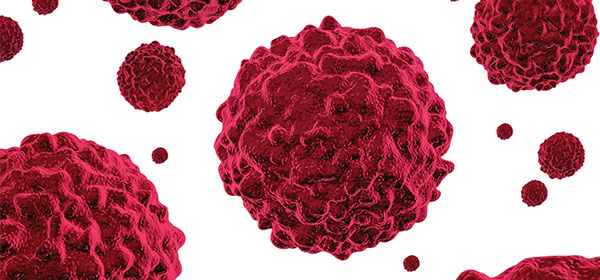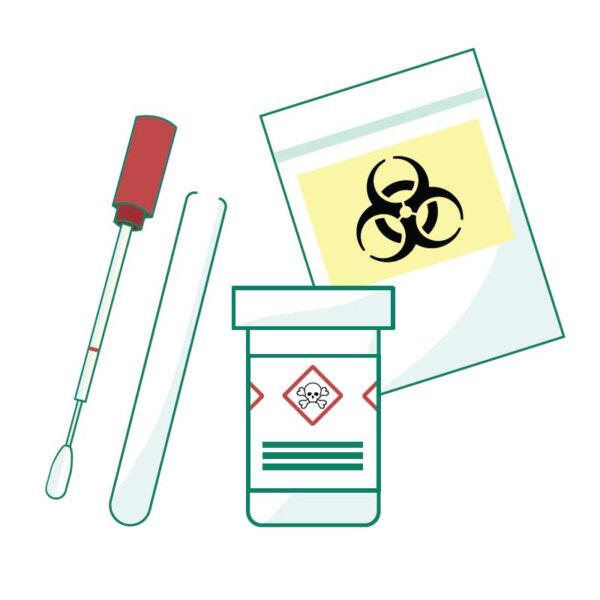What is Human Papilloma Virus (HPV)?
HPV is a group of more than 100 related viruses, with each virus given a number (HPV type). They affect different parts of the body and about 30 types of HPV can affect the genitals.
HPV infection can cause cervical, vulva, and vagina cancers in females.
For men, HPV infection can cause genital warts and anal cancer.
How is HPV transmitted?
HPV is transmitted by having vaginal, anal, or oral sex with someone who has the virus. It can be passed even when an infected person has no signs or symptoms.
How can HPV affect me?
"High-risk" strains can infect the genitals of both genders - the vulva, vagina, cervix, penis and scrotum, as well as the rectum and anus, and lead to precancerous or cancerous changes.
HPV types 16 and 18 account for about 70 percent of cervical cancer cases.
"Low-risk" types of HPV are primarily responsible for genital warts in males and females.
How do I protect myself against HPV?
In Singapore, the MOH recommendation is for sexually active women aged 30 years and above, to have HPV screening every 5 years.
Between 25-29 years old, the recommended screening is via a Pap smear if the woman has ever been sexually active.
To reduce your risk of HPV infection, you can take the HPV vaccination.
| Vaccines available | Protects against HPV subtypes | Recommended gender and age |
| 9-valent Single Dose Pay online 3 Doses Pay online |
6, 11, 16, 18, 31, 33, 45, 52, 58
|

Aged 9 to 14 years old: Two doses, 6 months apart Aged 15 to 45 years old: Three doses, at 0 month, 2 months and 6 months
|
| Bivalent |
16, 18
|

Aged 9 to 14 years old: Two dose, five to 13 months apart Aged 15 to 25 years old: Three doses. Second dose at 1 to 2.5 months after the first dose. Third dose at five to 12 months after the first dose |
Note: Vaccination is not suitable for pregnant women or if you have an allergy to any vaccine component. HPV vaccination is not a substit
ute for routine cervical cancer screening.
Source: www.healthhub.sg/a-z/diseases-and-conditions/701/faqs-on-hpv-and-hpv-immunisation
Terms & Conditions
- Terms and conditions for listed services apply. Please refer to the individual webpages.
- Unutilised items will not be refunded or discounted.
- Listed price and terms are subject to changes without prior notice.
How often should HPV screening be done? Is it different from a Pap smear?
Pap Smear

The Pap smear screens for abnormal changes in the cervical cells. It is recommended to be done every three years, for women between 25 to 29 years old.
As the body may be able to clear infections on its own, going for a HPV test at this age may not be necessary.
How is a Pap smear done?
It is a fast and simple procedure where an instrument is inserted into your vagina to locate the cervix. A soft brush is then used to collect some cells from your cervix. These cells will be sent to a laboratory to be examined under a microscope.
HPV Test

The HPV test screens for the high-risk cancer-causing HPV strains (eg. 16, 18) in the cervical cells. It is recommended that those aged 30 years and above do a HPV screening test every five years. At this age, the HPV test is a more effective test in in determining cervical cancer. This is because while your cells may appear normal, with the presence of high-risk HPV strains, the risk of your cells developing pre-cancer or cancerous changes in the future is higher, necessitating close follow-up with a gynaecologist.
How is an HPV test done?
The sample cells are collected via the same procedure as the Pap smear. However, your cells will be tested for the presence of HPV.
You are recommended to go for regular screening if you have ever been sexually active.
HPV DNA Self-Collection Kit
The HPV DNA self-collection is an easy-to-use self-screening tool for HPV detection in females.
The test identifies the presence of high-risk HPV strains even before cervical cell changes occur. A sample, taken from either the cervix or vagina, can be checked for the presence of HPV.
A guide on how to do a self-collection, will be provided. You would need to return the collected sample to the clinic within 72 hours.
Who is suitable for the HPV DNA self-sampling?
- Females aged 30 years and above
- Sexually active, or have been sexually active
- Not pregnant
Where do I purchase the self-collection kit?
You may purchase it from any Raffles Medical (GP) clinic.
How will I be notified of test result?
The clinic that you return the test kit to, will inform you of the test result.

Terms & Conditions
- Price quoted is inclusive of GST.
- Applicable at Raffles Medical clinics in Singapore.
- Unutilised items will not be refunded or discounted.
- Not applicable with other corporate programmes.
- Listed price and terms are subject to changes without prior notice.